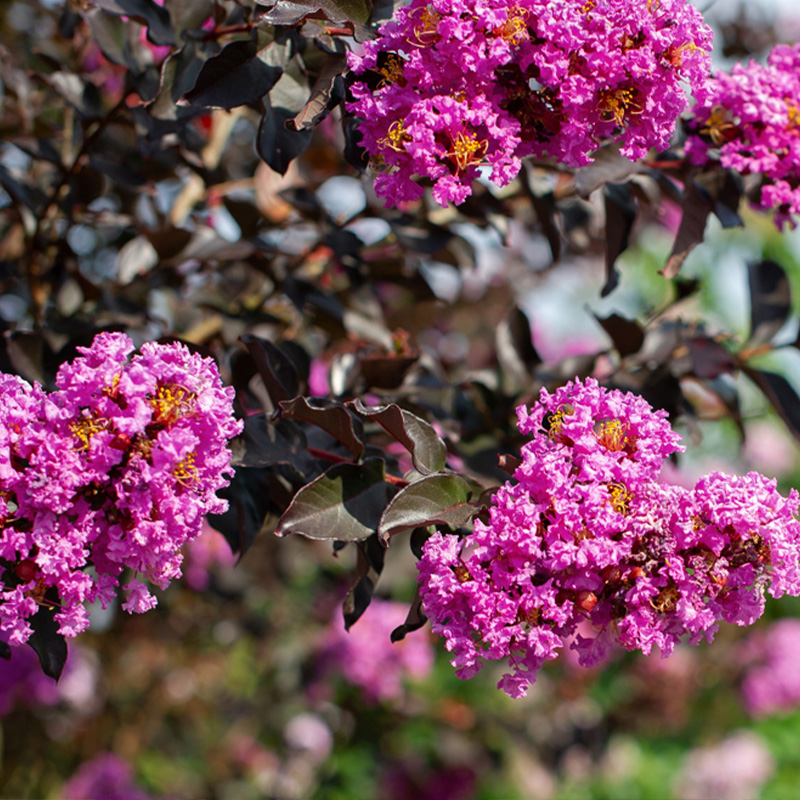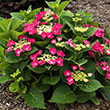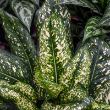You're shopping: DAVIDSONVILLE
(change store)
Crape Myrtles - LAGER 'THNDRSTRK LVNDR SKIES' 7G

LAGER 'THNDRSTRK LVNDR SKIES' 7G
no reviews for this product. Login to place a review.
Your Price $119.99
Item Number 244111
In store quantity:
2
Lagerstroemia 'JM8'
Height: 15 feet
Spread: 12 feet
Sunlight: full sun partial shade
Hardiness Zone: 6b
Other Names: Crape Myrtle, Crepe Myrtle
Group/Class: Thunderstruck Series
Description:
This spectacular ornamental shrub or small tree is covered in lavender blooms in summer, over contrasting near-black, glossy foliage; a captivating focal point for the garden or border
Ornamental Features:
Thunderstruck Lavender Skies Crapemyrtle is clothed in stunning panicles of lavender frilly flowers with pink overtones at the ends of the branches from early summer to early fall. It has attractive black foliage with hints of burgundy. The oval leaves are highly ornamental and turn dark red in fall.
Landscape Attributes:
Thunderstruck Lavender Skies Crapemyrtle is a dense multi-stemmed deciduous shrub with an upright spreading habit of growth. Its relatively fine texture sets it apart from other landscape plants with less refined foliage.
This is a relatively low maintenance shrub, and is best pruned in late winter once the threat of extreme cold has passed. It has no significant negative characteristics.
Thunderstruck Lavender Skies Crapemyrtle is recommended for the following landscape applications:
- Accent
- Mass Planting
- Hedges/Screening
- General Garden Use
Planting & Growing:
Thunderstruck Lavender skies Crapemyrtle will grow to be about 15 feet tall at maturity, with a spread of 12 feet. It has a low canopy with a typical clearance of 2 feet from the ground, and is suitable for planting under power lines. It grows at a fast rate, and under ideal conditions can be expected to live for 50 years or more.
This shrub does best in full sun to partial shade. It prefers to grow in average to moist conditions, and shouldn't be allowed to dry out. It is very fussy about its soil conditions and must have rich, acidic soils to ensure success, and is subject to chlorosis (yellowing) of the foliage in alkaline soils. It is highly tolerant of urban pollution and will even thrive in inner city environments. This particular variety is an interspecific hybrid.
Recently Viewed Products
Aglaonema 'Lumina' 6"
$34.99


